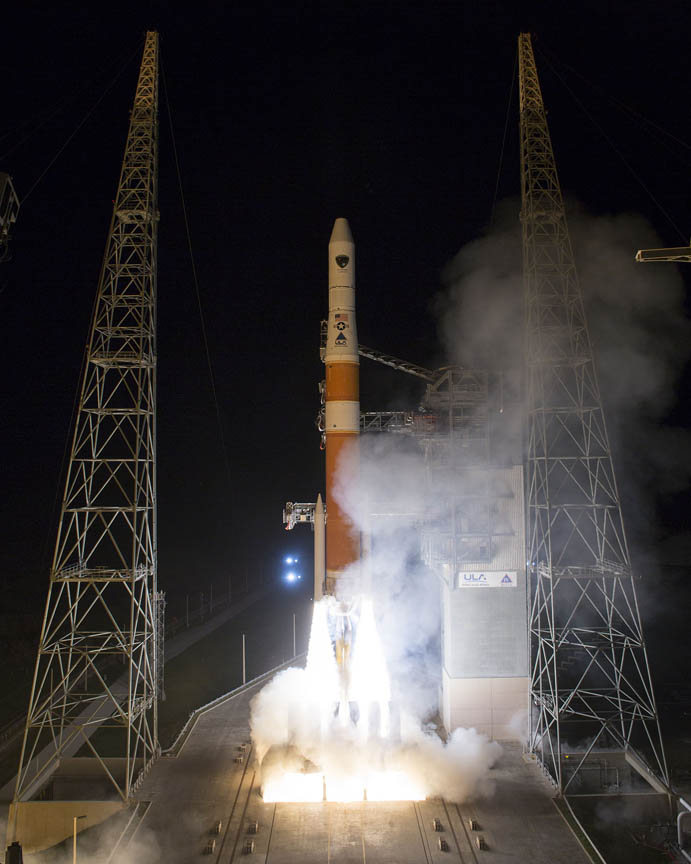[Updated August 19, 2016, to include Air Force responses to Inside GNSS questions.] The U.S. Air Force has announced a new competition for the next GPS III satellite launch, scheduled for 2019. The request for proposal (RFP) for an Evolved Expendable Launch Vehicle (EELV) Launch Service, due from the industry by September 19, follows a draft RPF that received “extensive industry engagements,” the Air Force said.
[Updated August 19, 2016, to include Air Force responses to Inside GNSS questions.] The U.S. Air Force has announced a new competition for the next GPS III satellite launch, scheduled for 2019. The request for proposal (RFP) for an Evolved Expendable Launch Vehicle (EELV) Launch Service, due from the industry by September 19, follows a draft RPF that received “extensive industry engagements,” the Air Force said.
Departing from a traditional approach that includes a contract for multiple launches, the fixed-price, stand-alone contract will be for one GPS III launch. The Air Force said its acquisition strategy for this solicitation “achieves a balance between mission success/operational needs, and lowering launch costs, through reintroducing competition for National Security Space missions,” according to Lt. Gen. Samuel Greaves, Space and Missile Systems Center commander and Air Force program executive officer for Space
As it introduced competition to the EELV program, the first few competitions were intentionally competed separately to allow the incorporation of lessons learned, said Alicia Garges, Space and Missile Systems Center spokeswoman. “Future missions may be competed as a block of more than one launch service as deemed in the best interest of the Government,” she said.
Only two companies qualify to send military payloads into space. The United Launch Alliance (ULA), a partnership between Boeing and Lockheed Martin, looks to compete, even though it dropped out of a previous GPS III launch competition last November. That round was won by Elon Musk-backed Space Exploration Technologies (SpaceX), the other qualified launch vehicle company.
Although not coming out and directly saying it will compete, ULA said it “looked forward to reviewing the EELV Phase 1A RFP,” said Jessica Rye, ULA spokeswoman, in a prepared statement.
“ULA wants to participate in all National Security Space missions for which we are eligible and competitive from a business standpoint. Each bid decision is made individually based on the opportunity and structure of the RFP,” she said.
As Inside GNSS reported last November, ULA said that it would be “unable to submit a compliant bid for GPS III-X launch services.” The company blamed its decision on the lack of Atlas rockets due to restrictions imposed by the 2015 National Defense Authorization Act, which continued a ban on Russian-built RD-180 engines imposed following Russia’s annexation of Crimea.
The ULA said that, along with not having accounting systems in place, the GPS III satellite launch request for RFP lowest price technically acceptable (PTA) provision allowed “for no ability to differentiate between competitors on the basis of critical factors such as reliability, schedule certainty, technical capability and past performance.”
Until the Air Force certified SpaceX for national security space launches in May 2015, ULA had the field to itself
This is a full and open competition; so, all certified contractors are eligible to compete for award of the GPS III launch, Garges said.
“Although whether to bid is a business decision, the Air Force continues to encourage competition for Phase 1A launch service RFPs,” she said. “The draft RFP process provides industry the opportunity to provide comments to the Air Force. At this time, we have no reason to believe ULA or SpaceX will not bid.”




